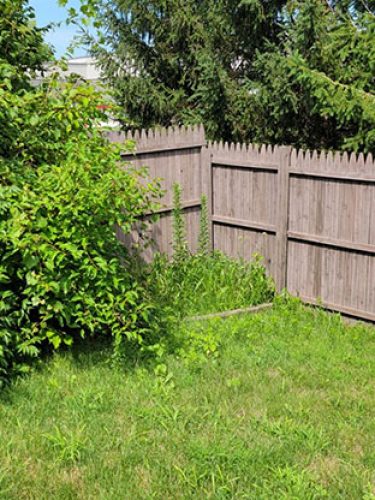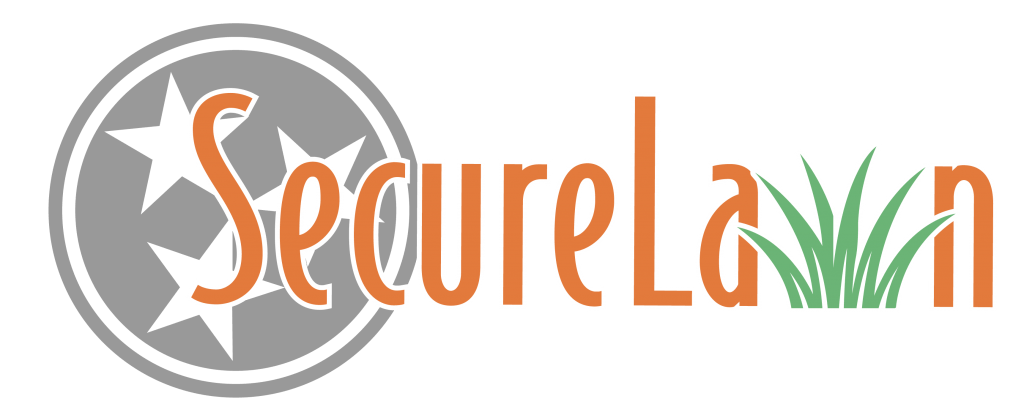Lawn fertilization treatments offer several benefits in Middle Tennessee, including promoting healthy and lush growth of grass, improving the overall appearance of the lawn, enhancing the lawn’s ability to resist disease and pests, and strengthening the roots of the grass to better withstand environmental stressors such as drought or extreme temperatures. Additionally, fertilization can help to reduce soil erosion and promote a healthier ecosystem by supporting beneficial microorganisms in the soil. Overall, regular fertilization treatments can help homeowners achieve a beautiful and healthy lawn that they can enjoy all year round.
Say farewell to unsightly broadleaf weeds and hello to a dense, vibrant green lawn!
We understand the aggravation that accompanies a weed-plagued yard. We provide seasonal services tailored to the needs of your lawn in middle Tennessee including our local climate and grass variety, complete with perfectly timed applications every four to seven weeks to treat those pesky weeds. Get ready for stunningly beautiful results!
Broadleaf weed control refers to the management and elimination of broadleaf plants that are considered weeds in a specific environment. These types of weeds can have a significant impact on the growth and health of desirable turfgrass, so it is important to have an understanding of the most common broadleaf weeds and the methods for controlling them.
Common broadleaf weeds include dandelions, clover, henbit, plantain, chickweed, lespedeza and spurge. These weeds often grow quickly and spread easily, which can lead to them taking over an area and competing with turfgrass for nutrients and water.
Post-emergent herbicides are the most common method for controlling broadleaf weeds. These herbicides work by controlling the weeds after they have emerged from their seeds. Any herbicide can’t kill a weed seed because the seeds are enclosed. You have to wait for the seed to emerge first so that the herbicide product can make contact with the foliage tissue of the weed itself.
That’s why it’s called a POST-emergent herbicide after it emerges.

You will also find that weed seeds typically need seasonal temperature ranges and moisture levels for them to germinate. That is why you’ll notice dandelions germinating the most during the months of March, April, and into early May each spring. That period to know to us in the Green Industry as “Dandelion Season.”
In addition to herbicides, there are other cultural practices that can be used to control broadleaf weeds, such as maintaining a thick, healthy lawn by core aerating and seeding your fescue lawn each fall. A thick, dense lawn is always the best defense against any weed intrusion.
When seeding, always select a high-quality turf type tall fescue blend of seed. They legally will have a tag on the bag indicating weed content, If it’s under 0.09% or lower, you selected a winner. Also, mow your fescue at 3 ½ to 4” inches high. This is a healthy height for your fescue and will shade off lower summer weeds too.
In conclusion, controlling broadleaf weeds in your lawn is important to maintain a healthy and attractive landscape. Understanding and identifying the common broadleaf weeds, and the most effective post-emergent broadleaf herbicides to use is what SecureLawn practices daily.
When mowing, have you ever cut your grass in a weed-free lawn?
It just sounds different in a very good way!
We start by creating a detailed custom lawn development gameplan by evaluating your lawn, including the size, topography, soil profile, grass type, turf density, weed populations, shade conditions, water drainage, and pet or foot traffic considerations.
Each customer is assigned a professionally trained and State Certified lawn care specialist/technician who has the flexibility to customize our program to meet the needs of your individual lawn.
SecureLawn only uses “top quality” products and never sacrifices safety standards. Our kid and pet-friendly products are non-staining, providing peace of mind for the whole family.
(Click on each tab to read more about each series)
Transforming the look of a home’s exterior can begin with a healthy, well-manicured lawn which provides an ideal foundation for imaginative and impressive landscaping. A lush and vibrant lawn not only contributes to creating a welcoming environment for the entire family but also helps unify all other landscaping elements to create a cohesive visual presentation. Since a home’s lawn is typically the first thing visitors notice upon arrival, it plays a crucial role in establishing a positive and hospitable first impression that exudes warmth and outdoor appeal.

SecureLawn Copyright © 2024 All rights reserved.